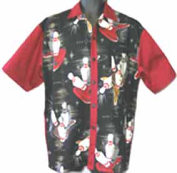To ease you minds a little I am not a numerologist. However, I have been very guilty in the past of confirmation bias. When a scientific breakthrough would prove certain dietary claims that went hand in hand with the Word of Wisdom I would accept those claims to justify my faith in the Word of Wisdom. In the process however, I would also have to reject certain other evidences like the studies that shows that a glass of wine each day can have a positive effect on your health. I enjoyed following the expeditions of Thor Hyerdal who built reed boats and sailed them from Africa to South America. They tended to support the idea that Lehi’s voyage was possible. But to accept this evidence it also meant that I had to ignore the mountain of evidence in South America that shows no link at all to the ancient middle-east.
Many scientists refer to the brain as a belief engine. It takes input from our senses and then turns that input into beliefs that will help us predict and cope with our chaotic world. When we see one event that follows another our “belief engine” makes a connection. The more often that sequence of events is seen then the more solidly that connection is made. By seeing crops grow after planting seeds and watering them you teach your brain that watering seeds causes crops to grow. The problem our brain has is that just because there is a correlation that does not mean there is necessarily a cause and effect relationship. If we continue to believe that this correlation is a cause and effect relationship we end up with weird beliefs like lucky bowling shirts and other illogical beliefs.
Looking at my own decision with a critical eye has helped me a lot. It has forced me to stop wasting effort on paths that will only lead to disappointment and it has helped me to focus on the aspects of my life that really make a difference. No longer am I wasting time trying to figure out why my lucky bowling shirt is lucky. I have just accepted that it isn’t and my game has improved. By no means am I claiming that I have eliminated confirmation bias. However, being consciously aware of why I choose to accept certain beliefs has really helped me to reach a mental peace and make sense of my surroundings.

Just for the record, the “lucky bowling shirt” is a metaphor for other events in my life. I bowl about once a month and I don’t remember which shirt I had on any of those times. I rarely bowl over 100 even with the kiddy bumpers up so I don’t think I could call any of those shirts lucky. :)


If examining your decisions critically has helped you reach a mental peace about your beliefs, then you should look into cognitive dissonance theory. It can be a bit unsettling at first, but it makes a lot of sense in understanding why we think and do the things we do.
ReplyDeleteAs for confirmation bias, I always found it interesting that the scientific methods is specifically designed to help avoid confirmation bias. Instead of trying to prove a hypothesis, you try to find ways to disprove it. Basically saying, I think x is true, so let's design an experiment to show it's not.
My life is full of conflicting cognitions. For years I've felt that I had to make them all jive. I truly enjoy examining the parts of my life and my beliefs that are conflicting. I have found that the most unsettling thing about this approach is that I am frequently alone in my quest because so few other people enjoy this approach, specifically as it pertains to theology.
ReplyDeleteAs far your comments about the scientific method, I've always felt it was interesting that the challenge in Moroni 10:4 is phrased in the negative. To me this is direct invitation to apply the scientific method.
While not necessarily an invitation to apply the scientific method, I have always liked Alma 32, because it's an invitation to apply scientific principles by experimenting with faith.
ReplyDeleteI think that science provides sound principles and methods for uncovering physical truth, and those same precepts can be applied to religion, with one very important exception. Science deals with what can be observed, measured, and repeated. Because faith is not repeatable, measurable, or observable with our physical senses, we have to rely on some other method to detect the truth.